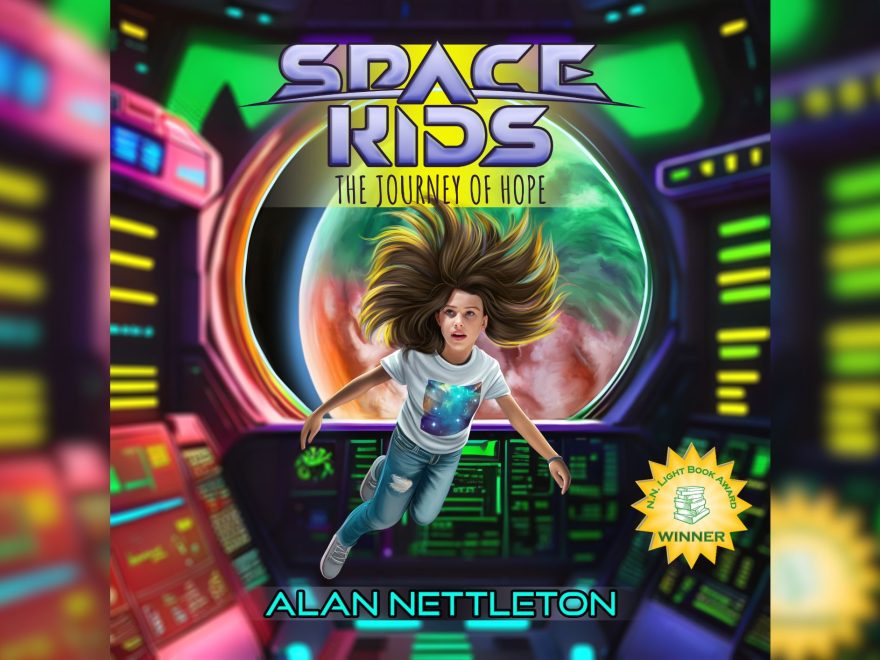In a remarkable twist of fate, Aylesbury author Alan Nettleton may have unintentionally anticipated a major scientific development in his children’s science fiction book Space Kids – The Journey of Hope, first released in 2021.
Originally written to spark the imagination of his own children, the story follows a 12-year-old protagonist named Sophie who embarks on a bold mission to the distant exoplanet K2-18b. There, she and her crew of child astronauts encounter intelligent alien life. Now, in 2025, researchers at the University of Cambridge have discovered potential signs of life on that very same celestial body.
Could this be what awaits us on K2-18b? Cover art from Nettleton’s second Space Kids instalment adds to the intrigue.
“It’s surreal,” says Nettleton. “When I picked K2-18b as the setting for Sophie’s adventure, it was one of many distant planets I could have chosen for the story. I never imagined the real planet would make headlines just a few years later.”
The Cambridge team’s findings were made possible using NASA’s James Webb Space Telescope (JWST), which detected chemical indicators in the planet’s atmosphere. Notably, these include dimethyl sulphide (DMS)—a compound on Earth produced solely by living organisms, particularly marine microbes. If verified, this could represent one of the strongest pieces of evidence yet for extraterrestrial life.
“This is the strongest evidence yet there is possibly life out there,” said Professor Nikku Madhusudhan, the lead scientist on the study. “If this association holds, then this planet could be teeming with life.”
While the results currently hold a 99.7% confidence level, they have yet to reach the five-sigma benchmark necessary for scientific confirmation. Still, the alignment between Nettleton’s fictional world and this real-world discovery has captivated both local readers and the scientific community.
Space Kids – The Journey of Hope marked Nettleton’s debut as an author. Written during lockdown, the book aims to encourage young readers aged 8–12 to develop an interest in science and space. The series has been celebrated for its balance of engaging storytelling, imaginative adventures, and scientific plausibility.
“It just goes to show the power of storytelling,” Nettleton said. “I hope this inspires young people in Aylesbury and beyond to look up at the stars and wonder, ‘What if?’”
The University of Cambridge’s findings have been published in The Astrophysical Journal Letters, with additional data and observations expected in the near future.
Space Kids – The Journey of Hope is available to buy on Amazon: https://amzn.eu/d/j78uhH8

